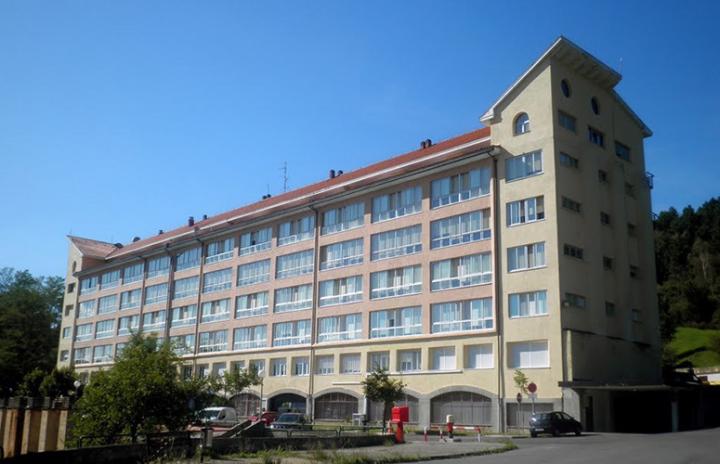The ECRI group of the UPV/EHU-University of the Basque Country has established the socio-emotional value of the Hospital Santa Marina in Bilbao at about 60 million euros a year

Credit: UPV/EHU
The interest expressed by the general public in social aspects is constantly growing and there are more and more companies and organisations that want to know what social contribution they make. The tool used to analyse this aspect is social accounting, “an information system that incorporates the social value that is generated in society”, explained Leire San Jose, leader of the ECRI research group.
The UPV/EHU research group ECRI Ethics in Finance and Social Value has conducted this analysis at the Hospital Santa Marina run by Osakidetza. This is the first time that it has been applied to a hospital. The social value added index of the hospital has been calculated. “It is an ideal tool for rating the hospital’s social efficiency because it establishes how much social value is generated from the public funding that is allocated to it. Great interest has always existed in finding out how efficient the public spending of hospitals is, but until now the social perspective has never been incorporated”, explained the UPV/EHU’s lecturer and PhD holder.
The features of the Osakidetza Hospital Santa Marina mean that it is highly suited to the conducting of this study: it is a medium-sized public hospital (it has 238 beds and caters for about 200,000 people), it cares for elderly people with chronic diseases or in need of palliative care, so it is easier to interview the stakeholders. A hospital has many stakeholders; besides the actual users of the hospital, it would also be necessary to consider families, staff, future staff (students), teaching staff, suppliers, public administration, etc. “The social value generated for these stakeholders and its conversion into money allow the decisions geared towards the social aim of the public hospital to be managed more efficiently,” added San Jose.
What is the value of the socio-emotional contribution made by a hospital?
The methodology for conducting social accounting has been established in previous pieces of work, “but every case is different: in each case it is necessary to consider to whom a social contribution is made and how much”, pointed out the researcher. After interviewing the various stakeholders, the research team produced a list of the social values quoted, and having specified the variables provided by a social value, “we translated them into euros”, she explained.
Among the social aspects are, firstly, those linked to the market which are incorporated into traditional accounting and “have to do with suppliers, staff, payments, taxes, etc.” Secondly, there are the aspects not linked to the market, “such as the number of beds made available in other hospitals, student internships, the service offered by the health professionals, the benefits accruing to families (alleviation, time, etc.), the benefits provided by hospital infrastructure, etc.”, she added.
The researcher pointed out that the socio-emotional value of the Hospital Santa Marina amounts to approximately 60 million euros per year for the 2013-2017 period; nevertheless, “the most important thing is that the hospital is interested in having this study carried out, in resorting to stakeholders to ask them and find out what needs to be improved”. The researcher also explained that social accounting is tremendously useful in enabling an organisation to compare itself over time, in other words, “to see the evolution of an organisation as the years go by; but it is of great use above all in enabling it to compare itself with other hospitals”, she stressed. San Jose admitted that “it is true that we have begun with a hospital that has few patients and with very specific profiles, but there is no problem in applying social accounting to all kinds of hospitals and it would be highly desirable to see what others also do well. It may be important to integrate social efficiency into the accounting of companies; not just cost-based efficiency but also that based on social contributions”, she concluded.
###
Additional information
Leire San Jose-Ruiz de Aguirre is a PhD holder and tenured lecturer in the department of Financial Economics II at the Faculty of Economics and Business of the UPV/EHU (Sarriko), as well as Visiting Research Fellow at the University of Huddersfield (UK). Right now, she leads the ECRI Ethics in Finance and Social Value research group which collaborates with numerous organisations and universities. This research was conducted in collaboration with the UPV/EHU lecturer Ramón Bernal, and José Luis Retolaza of the University of Deusto, both of whom belong to the ECRI group.
Media Contact
Matxalen Sotillo
[email protected]
34-688-673-770
Original Source
https:/
Related Journal Article
http://dx.




